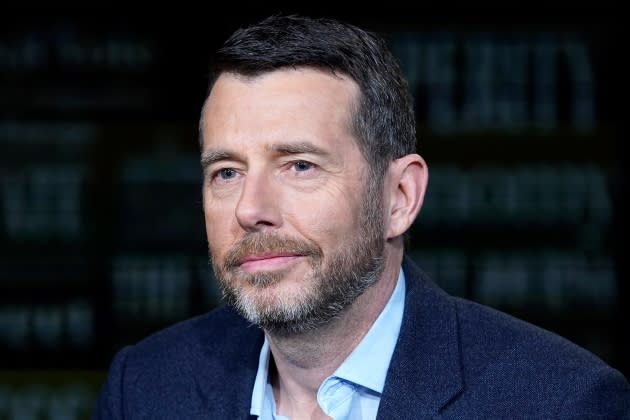Obama’s Campaign Manager Is Now Coaching TikTok’s CEO
- Oops!Something went wrong.Please try again later.
- Oops!Something went wrong.Please try again later.

As TikTok works to convince Congress to drop efforts to ban the app nationwide, the company has reportedly recruited Democratic and Republican power players, including former Obama campaign manager David Plouffe, to help coach CEO Shou Zi Chew.
According to a report from The Wall Street Journal, TikTok has enlisted the services of former Obama advisers David Plouffe and Jim Messina, former Trump adviser Tony Sayegh, and former Disney Communications Chief Zenia Mucha to help Chew navigate the scrutiny from lawmakers.
More from Rolling Stone
Last week, Chew was subjected to more than four hours of questioning by the House Energy and Commerce Committee. TikTok’s ownership by the Chinese company ByteDance has raised concerns among legislators that the app is harvesting and handing over American user data to the Chinese government. A proposed ban on the app is currently languishing in the Senate, where an effort to force a vote on the proposal was blocked on Wednesday.
TikTok has exploded in popularity in recent years, with the app recently announcing it has 150 million active users in the United States Alongside recruiting experienced communications specialists to help plead their case, the app has also turned to its formidable roster of influencers and creators to help sway Congress in their favor.
TikTok is trying to convince lawmakers that American data is safe from foreign powers. The company launched a $1.5-billion initiative known as “Project Texas” that promises to move all American user data to domestic servers hosted by Oracle. In February, Brooke Oberwetter, TikTok’s head of policy communications, told Texas Monthly that plan is intended to ensure that “you don’t have to take my word for it or Oracle’s word for it … there will be multiple layers of oversight by multiple federal agencies, multiple outside consultants, security vendors, and auditors.”
In his testimony before Congress, Chew repeatedly told lawmakers that TikTok’s data practices were no different than that of other major Silicon Valley corporations, which have also worked to skirt the hammer of government regulation.
Although the specifics of what advice Plouffe and other advisers are providing to TikTok are unknown, after departing the Obama administration he took up a post as senior vice president of policy and strategy at Uber. At the time, the ride-sharing company was facing a series of regulatory battles with taxi commissions and various city governments.
Where Plouffe has expertise in charming potentially hostile legislators, Mucha made a name for herself helping Disney make inroads in a skeptical Chinese market. As TikTok seeks to solidify its presence in the United States, Mucha’s expertise in marketing the cultural value of content creation will likely be invaluable to the brand.
Despite the extended grilling from lawmakers, legislators’ resolve in passing a national ban may be cracking, largely due to internal disputes over the proposed legislation itself. Major players in Republican politics have accused the proposed “Restrict Act,” which would grant the government the right to “prohibit certain transactions between persons in the United States and foreign adversaries, and for other purposes,” including TikTok, of being little more than an expanded version of the controversial Patriot Act.
This week, Fox News host Tucker Carlson repeatedly attacked the legislation, stating that while TikTok’s connections to China were concerning, the legislation is a thinly veiled power grab by American lawmakers.
On Wednesday, Sen. Rand Paul (R-Ky.) expressed his opposition to another ban introduced by Josh Hawley, stating that if the American government were to flat-out prohibit a company’s operation in the U.S. it would be no better than the Chinese government. “If you ban a social media platform, you know, I don’t know if you get any clearer that that goes against the First Amendment,” Paul told Fox News.
Best of Rolling Stone
